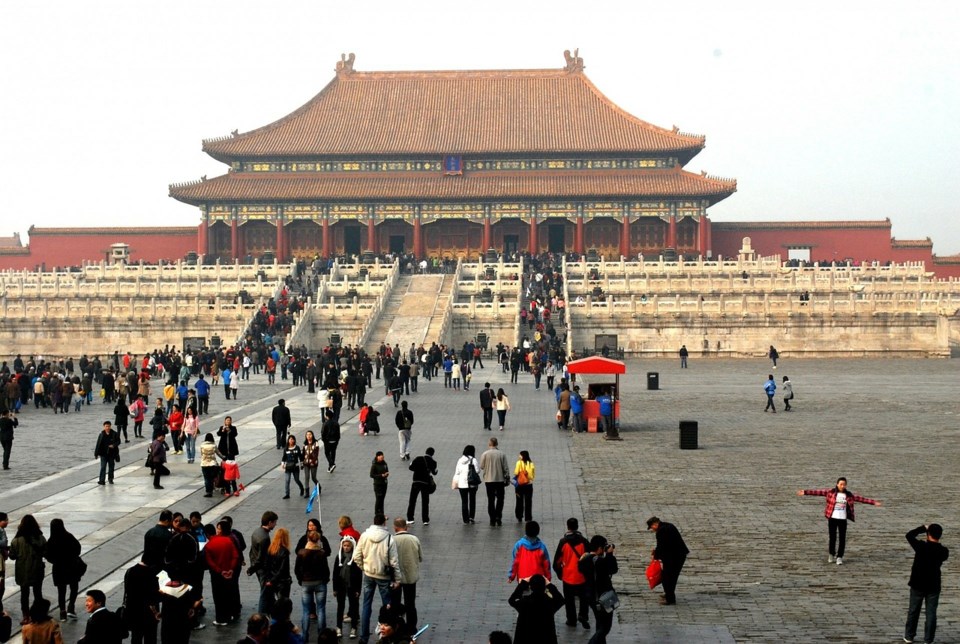Even before the arrest in Vancouver of Chinese telecom giant Huawei Technologies Co. Ltd.’s CFO in December, observers had been lobbying Ottawa to increase legislative protection for Canadian companies intertwined in the world’s second-largest economy.
The concerns over Canadian businesses being hurt when geopolitical, legal or value-based disputes flared up with China re-emerged following the arrest of Huawei’s Meng Wanzhou.
Several Canadian citizens were subsequently arrested in China, which many analysts are attributing to Beijing retaliating against Ottawa.
The issue of more government protection for companies with Chinese exposure came to the forefront last July, when a Canada Border Services Agency statement on possible steel dumping into Canada by other markets used “Chinese Taipei” to refer to Taiwan. The incident came months after Air Canada made headlines by changing the online country designation of Taipei from Taiwan to China.
On September 10, Eric Lerhe, a Munk senior fellow at Ottawa-based think tank Macdonald-Laurier Institute, released a report cal l ing on Ottawa to re-examine Canada’s policy on that front, including the “One China” policy that has guided western relations with Beijing on the Taiwan issue for decades.
“Canada’s current approach to Taiwan remains heavily rooted in the past – a ‘one-China’ policy designed in 1970, when the goal was to bring China out of isolation and sideline a Taiwanese dictatorship,” Lerhe, a former commodore in the Royal Canadian Navy and commander of the Canadian Fleet Pacific, said in the report.
“The current situation is very different.… Ottawa needs to be prepared to challenge some of the sacred shibboleths in how it has approached China and Taiwan.”
The difficulty, said Scott Simon, the University of Ottawa’s co-chair in Taiwan studies, is that the Chinese market – now the world’s second-largest economy and Canada’s second-largest trading partner – is crucial for several Canadian industries. At the same time, Beijing has increasingly used its growing economic leverage to push back against the West on geopolitical and social issues.
Taiwan is an extremely contentious issue in Asia.
When the Communist Party of China defeated the ruling nationalist Kuomintang (KMT) in 1949 to end the Chinese civil war, KMT retreated to Taiwan, which has since evolved into a multiparty liberal democracy. China continues to view Taiwan as a renegade province.
The Taiwanese-Canadian community, concentrated in Metro Vancouver and Greater Toronto, has a population of close to 200,000.
Charlie Wu, managing director of the Asian-Canadian Special Events Association and the organizer of the annual TaiwanFest in Vancouver and Toronto, said Taiwanese Canadians and businesses have always been acutely aware of the fine line they walk.
While Wu faces a different version of that balancing act – Air Canada is a key TaiwanFest sponsor – he hopes the controversy will focus more public attention on the issue.
“Perhaps this exercise of working with Air Canada and Taiwan-Fest, allowing people to learn about the festival and Taiwan, may provide businesses with some perspectives to think about how to deal with this,” Wu said. “Do I really have to stand on one side, or is there a way I can be more creative, so as not to be seen as bowing to pressure?”
Canada’s 2016 merchandise trade with Taiwan reached $1.54 billion in exports and $5.08 billion in imports; its trade with China during the same period was $20.1 billion in exports and $64.4 billion in imports.
Simon said Taiwan is one of several concerns Canadian companies have with doing business in China.
He noted that, because foreign companies have no property rights in China, they are vulnerable to sudden changes in regulations.
He cited the example of Starbucks opening a café in Beijing’s Forbidden City in 2000, then suddenly being forced to close in 2007 due to backlash from Chinese domestic media.
While Canadian businesses wait for legal protection from Ottawa, Simon said companies such as Tim Hortons, which announced in July it plans to open 1,500 stores in China in a joint venture, should consider finding a local Chinese owner-franchisee to manage the potential risk.
Lerhe’s report notes that governments in New Zealand, Australia, Germany, Japan and the United States joined Canada in supporting Taiwanese inclusion in the World Health Assembly and World Health Organization, which signifies that some western countries have shown a willingness to draw the line somewhere with Beijing. “Canada should work with its allies to develop a prioritized action list of other international organizations that Taiwan should be a member of, such as the International Civil Aviation Organization, Interpol and the UN Framework Convention on Climate Change,” Lerhe wrote.
“Any one of these actions will undoubtedly produce the usual hyperbolic outrage from China. But … almost all of the recommendations are based on actions some other western-oriented nation has already taken.”
For Wu, part of the solution is to support Canadian businesses while understanding the headwinds they face occasionally from Beijing.
“If you see Air Canada as the national carrier, it’s the Canadian airline,” said Wu, whose TaiwanFest has thrived despite the pressure, annually drawing about 200,000 to events in Vancouver and Toronto.
“If, today, Canadian businesses get treated badly in the world, will we stand behind them? Obviously, we will. I think we need to see that they have gotten some pressure, and maybe they need to find a way to balance it. We want to offer them a different perspective.”
Simon agreed. He added that an example of how Canadian government and businesses should act is found in Canada’s own history.
“You know, Air Canada never went along with the U.S. embargo against Cuba; they found ways around that. For quite a long time, many Canadian firms didn’t go along with that…. We have to unite around our right to say no to foreign governments. If we can say no to the United States, we can say no to China as well.”



